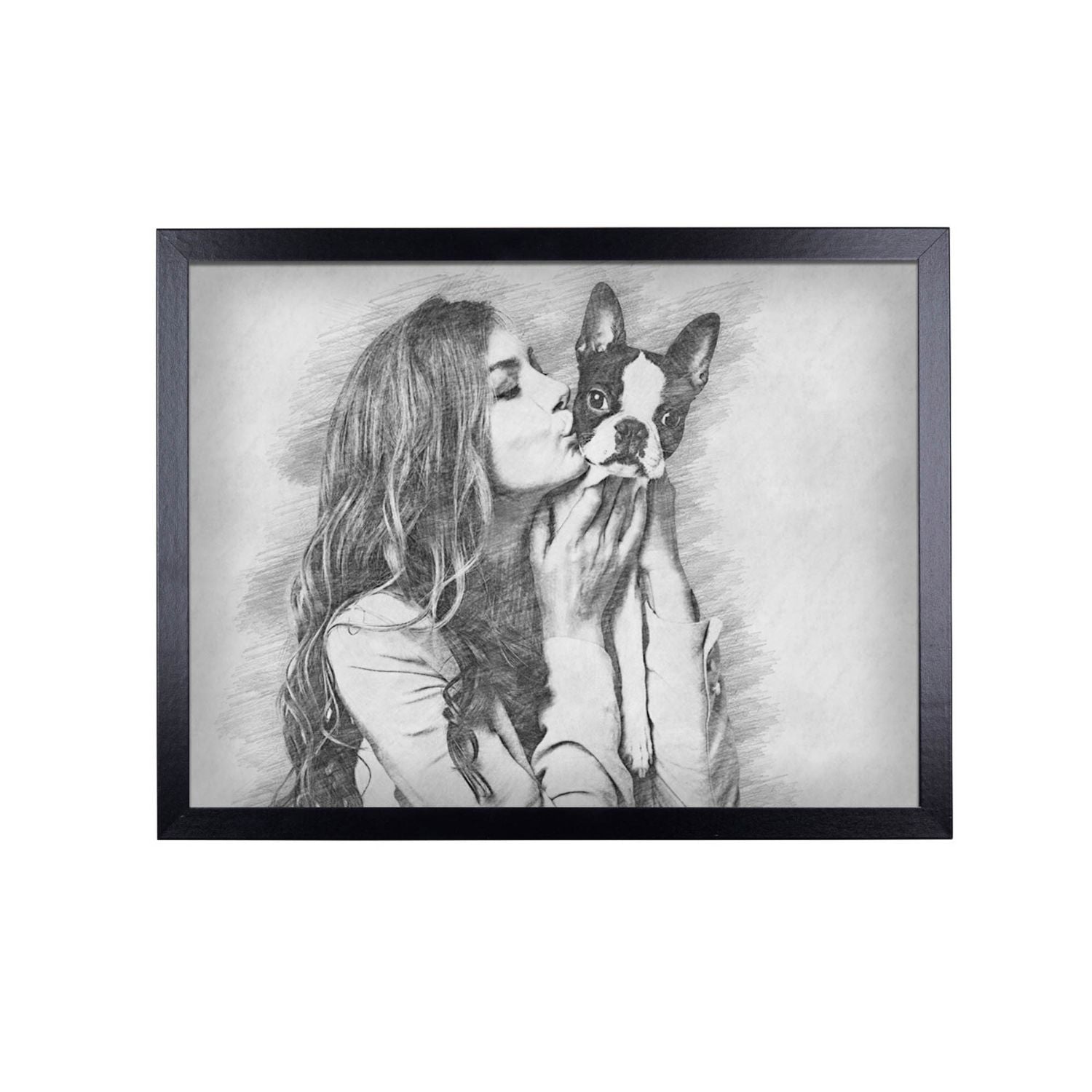10 Powerful Reasons The Beauty of Buying Handmade Matters More Than Ever
The Beauty of Buying Handmade: Why It Matters More Than Ever
In a world that’s becoming increasingly automated and commercialized, The Beauty of Buying Handmade is a refreshing reminder of authenticity, creativity, and human connection. With global supply chains stretching across continents and mass production dominating most industries, the simple act of choosing a handmade item can have profound implications—not just for the maker, but for the planet, local economies, and our own sense of well-being.
Let’s explore why now, more than ever, handmade matters.
Understanding Handmade in a Mass-Produced World
Definition of Handmade Products
Handmade items are crafted by skilled artisans using traditional or manual techniques, often without the use of industrial machinery. Each product reflects a labor of love, skill, and time, setting it apart from uniform, factory-made alternatives.
Differences Between Handmade and Mass-Produced
Mass-produced items are made in large quantities using machines, prioritizing speed and cost-efficiency. Handmade goods, on the other hand, prioritize uniqueness, quality, and intention. There's no mass template—each piece carries the individual signature of its creator.
Historical Shift Towards Industrialization
During the Industrial Revolution, the emphasis shifted from craftsmanship to mechanization. While this made goods more accessible, it also led to the devaluation of traditional crafts and a detachment from the origins of what we consume. Today, many are reawakening to the value of handmade in an effort to reconnect with heritage and integrity.
The Unique Value of Handmade Goods
One-of-a-Kind Appeal
Every handmade piece is a unique creation. Whether it's a ceramic mug, a handwoven scarf, or a carved wooden spoon, no two are exactly alike. This uniqueness is not a flaw but a feature—one that mass-produced goods can't replicate.
Artisanal Touch and Quality
Handmade items are often crafted with superior materials and meticulous attention to detail. Artisans pour years of experience into perfecting their techniques, resulting in goods that are durable and rich in character.
The Soul of the Maker
When you buy handmade, you're investing in a story. Behind every item is a human—someone with passion, skill, and a dream. That soul, that emotion, is embedded in the piece, making it infinitely more meaningful.
Supporting Local and Global Artisans
Empowering Small Businesses
When you choose handmade, you're supporting individual artisans and small business owners rather than large corporations. These makers often operate out of home studios or small workshops, relying on their craft to sustain their livelihoods. Each purchase you make helps them continue doing what they love and reinvest in their community.
Sustaining Cultural Heritage
Many handmade crafts are rooted in centuries-old traditions that have been passed down through generations. From indigenous beadwork in South America to handwoven textiles in Africa, these crafts carry the essence of cultural identity. Buying handmade helps preserve these techniques and ensures they are not lost to time.
Creating Livelihoods
In many parts of the world, especially in rural and underdeveloped regions, handmade crafts provide essential income. Organizations and cooperatives centered around handmade production offer training and fair wages, enabling artisans—especially women—to gain financial independence and improve their standard of living.
The Environmental Benefits of Buying Handmade
Reduced Carbon Footprint
Mass-produced goods often travel thousands of miles before reaching your hands, contributing significantly to carbon emissions. Handmade items are typically made and sold locally or regionally, drastically reducing transportation-related pollution.
Minimal Waste and Sustainable Practices
Artisans are inherently more mindful of their materials. They tend to work in small batches and often reuse or recycle materials, leading to less industrial waste. Many handmade creators also embrace zero-waste philosophies, using every scrap to its fullest.
Use of Natural and Upcycled Materials
Whether it’s hand-dyed organic cotton or upcycled metal and wood, handmade products often feature natural or repurposed elements. This not only reduces environmental harm but also lends a rustic, eco-conscious charm to the final product.
Emotional Connection and Personalization
Stories Behind Each Product
A handmade item isn’t just something you use—it's something you experience. The story of its creation, the hands that shaped it, and the love that went into it all add layers of meaning that mass-produced items simply lack.
Customization Possibilities
Want a mug with your name on it? Or a necklace in your favorite gemstone? Many artisans offer custom orders, allowing you to co-create the product. This level of personalization creates a bond between the buyer and the maker—and results in something truly special.
Sentimental Value Over Time
Handmade items are often cherished for years, sometimes even passed down as heirlooms. They carry memories, milestones, and meaning, becoming more valuable as time passes. Their imperfections and uniqueness add character, not clutter.
Ethical and Fair-Trade Considerations
Transparency in the Supply Chain
Unlike many large brands, handmade businesses often maintain a short and transparent supply chain. Buyers can trace where materials come from and how products are made, building trust and accountability.
Better Working Conditions
Mass production can sometimes mean exploitative labor conditions in sweatshops. By contrast, handmade businesses are often ethically driven, providing safe environments and fair wages for artisans.
Conscious Consumerism
Buying handmade is an act of conscious consumerism. It’s a way to say, "I care about who made this, how it was made, and what impact my purchase has." It's a powerful form of everyday activism that aligns spending with values.
The Rise of the Handmade Economy
Digital Marketplaces for Artisans
Platforms like Etsy, Shopify, and local e-commerce sites have given artisans global reach. A potter in a small town can now sell mugs to customers around the world. This democratization of commerce is reshaping how we shop.
Growth of Local Craft Fairs
Farmers’ markets and craft fairs have become community staples. These gatherings offer buyers the chance to meet makers face-to-face, ask questions, and connect over shared appreciation for quality and craftsmanship.
Social Media and Maker Movements
Instagram, Pinterest, and TikTok have fueled a resurgence in handmade culture. Behind-the-scenes videos, time-lapses of painting or pottery, and tutorials not only showcase skills but also build communities of support and admiration for the handmade lifestyle.
Handmade in Fashion and Home Decor
The Slow Fashion Movement
Fast fashion has come under scrutiny for its environmental toll and ethical issues. In contrast, handmade clothing champions quality over quantity. Each piece is made to last and often designed to be timeless rather than trend-driven.
Handcrafted Interior Styling
From hand-carved furniture to handmade wall hangings, decor created by artisans brings warmth and individuality to any space. These pieces often become focal points that spark conversations and admiration.
Fusion of Traditional and Modern Aesthetics
Modern handmade design blends traditional techniques with contemporary flair. The result is a beautiful marriage of heritage and innovation—something that fits seamlessly into today’s eclectic homes and wardrobes.
Gift-Giving with Purpose
Meaningful Presents
A handmade gift speaks volumes. It tells the recipient that you didn’t just grab something off the shelf—you thought about them, cared enough to seek out something unique, and wanted to give a present with soul. Whether it’s a hand-knit scarf or a custom portrait, these gifts are treasured because they feel personal and heartfelt.
Supporting Passion and Purpose
When you choose handmade, you're not only giving something special—you’re also supporting someone’s dream. Every purchase helps an artist continue doing what they love. It's a beautiful ripple effect: one gift that benefits both the giver, the receiver, and the creator.
Avoiding Mass Market Souvenirs
Too often, souvenirs become generic and meaningless. Handmade options—like hand-painted ornaments, local artwork, or artisan jewelry—carry a genuine piece of the place or culture they come from. They’re not just things; they’re keepsakes filled with meaning.
Economic Impact of Handmade Purchases
Strengthening Local Economies
Every dollar spent on a handmade product stays within the local economy far longer than money spent at a big-box store. Artisans often reinvest in their communities, purchasing materials locally, collaborating with nearby businesses, and supporting regional events.
Circular Economy and Community Wealth
Handmade businesses tend to operate in a circular fashion—recycling, repairing, and reusing where possible. This creates a more resilient and self-sustaining economy that values people and planet over profit.
Job Creation and Skill Preservation
By choosing handmade, consumers help create jobs not just in production but also in teaching, selling, and promoting crafts. This support ensures that vital traditional skills are passed down and preserved, not lost to automation.
Educating the Next Generation
Teaching Craftsmanship
Craft isn’t just a hobby—it’s a skill set that teaches patience, precision, and pride in one’s work. By exposing young people to handmade items and encouraging them to try making things themselves, we cultivate a new generation that values quality over quantity.
Encouraging Appreciation for Creativity
Handmade goods inspire awe and curiosity. Children who grow up around handmade items are more likely to appreciate the time and talent it takes to create, fostering deeper respect for artistry and originality.
Craft as a Therapeutic Practice
Crafting is known to have mental health benefits. Whether it's painting, knitting, or woodworking, the act of making something by hand can be meditative and healing. Sharing these practices with younger generations provides tools for emotional resilience and self-expression.
Challenges Faced by Handmade Artists
Competition with Fast Retail
Despite their uniqueness and quality, handmade items often struggle to compete with cheaper, mass-produced alternatives. Many consumers still prioritize convenience and low prices over ethics and sustainability.
Pricing and Consumer Perception
Handmade goods are priced to reflect the time, effort, and materials involved, but not everyone understands that. Educating buyers about the true cost of craftsmanship is crucial for building long-term support.
Time-Intensive Creation Process
Unlike mass production, where thousands of items can be made in a day, handmade creation takes time. This limits the volume artisans can produce and can make it harder to meet high demand or scale up without compromising quality.
How to Start Buying Handmade
Where to Find Authentic Handmade Products
Start by exploring local farmers' markets, art fairs, and craft festivals. Online platforms like Etsy, Big Cartel, and even Instagram are rich with talented makers. Don't hesitate to ask questions about how something was made—that's part of the joy!
Identifying Genuine Craftsmanship
Look for details like slight variations in color, finish, or shape—signs that a real human made it. Authentic artisans are usually transparent about their process, happy to share their stories and techniques.
Budgeting and Prioritizing Handmade Purchases
You don't have to replace everything you own with handmade right away. Start small: a mug, a necklace, a journal. Prioritize items you use often or give as gifts. Over time, your collection will grow, and each piece will have a story.
Real-Life Stories from Artisans and Buyers
Journeys of Passionate Makers
Take Maya, for example—a ceramicist who left her corporate job to follow her passion. Today, she creates hand-thrown pottery that sells across the country. Each mug she makes is a symbol of her leap of faith and her love for craft.
Impactful Buyer Testimonials
Buyers often speak of the joy they feel supporting a real person rather than a faceless brand. “I bought a hand-knit blanket from a local weaver, and it’s the coziest thing I own,” said Emily, a loyal handmade shopper. “But more than that, I love knowing who made it.”
Community Building Through Handmade
Markets and maker spaces aren’t just about shopping—they’re about connecting. When buyers and sellers share stories, tips, and encouragement, they create a sense of belonging that’s often missing in traditional retail.
FAQs About Buying Handmade
Is handmade really better quality?
Yes, in most cases, handmade products are of higher quality than mass-produced alternatives. Artisans typically take pride in their work, using premium materials and paying close attention to details. Unlike items made on assembly lines, handmade goods are crafted with care, making them more durable and meaningful.
Why are handmade products more expensive?
Handmade items may seem pricier, but you're paying for more than just the product—you're supporting the artisan’s time, effort, and skill. Each piece is individually made, often over hours or days, with meticulous attention to quality and design. You're also paying for ethically sourced materials and sustainable practices.
Where can I buy handmade items online?
There are several platforms dedicated to handmade goods, such as Etsy, ArtFire, and Folksy. Many artists also sell through personal websites or social media. Local directories and craft collectives often list artisans in your area, and many now ship worldwide.
How can I support artisans without buying?
You can support artisans by sharing their work on social media, leaving positive reviews, subscribing to their newsletters, or recommending them to friends. Even a simple "like" or "comment" on their posts can boost visibility and encourage others to explore handmade products.
Are handmade items sustainable?
Generally, yes. Handmade items are often made with eco-friendly materials, use less energy to produce, and generate minimal waste. Many artisans embrace sustainability as a core value, prioritizing local sourcing, natural dyes, biodegradable packaging, and low-impact production methods.
Can handmade ever replace mass production?
While handmade can't completely replace mass production due to scale and demand, it can complement it by offering sustainable, ethical, and emotionally valuable alternatives. The growing popularity of handmade reflects a shift toward mindful consumption, where people seek fewer, better-quality items that align with their values.
Conclusion: Why Handmade Matters More Than Ever
Rediscovering the Human Touch
In a world dominated by machines and convenience, handmade products remind us of our humanity. They offer warmth, personality, and connection—things that no factory can replicate. Buying handmade reconnects us with the people and stories behind what we consume.
Making Mindful Choices in a Fast World
Our purchasing habits have power. Every time we buy handmade, we vote for ethical practices, sustainability, creativity, and community. It’s a way of saying no to waste and exploitation, and yes to beauty, authenticity, and intention.
A Better Future Through Handmade
As we face global challenges—from climate change to economic inequality—handmade offers a hopeful path forward. It promotes local economies, empowers individuals, and nurtures our relationship with the world around us. It’s not just about things—it’s about values.
So next time you shop, think handmade. It's not just a product—it's a story, a relationship, a movement. And it's never mattered more than it does today.



